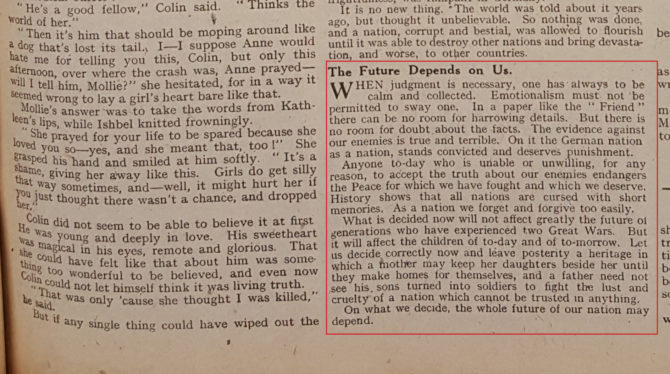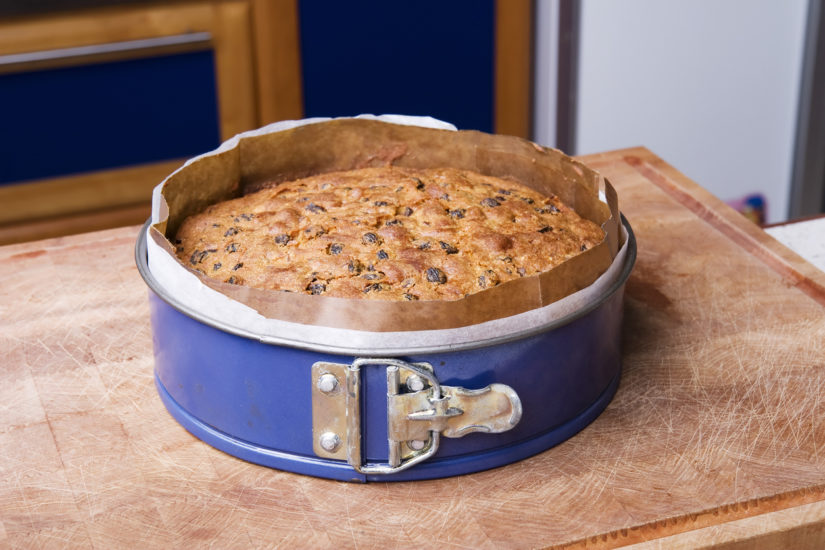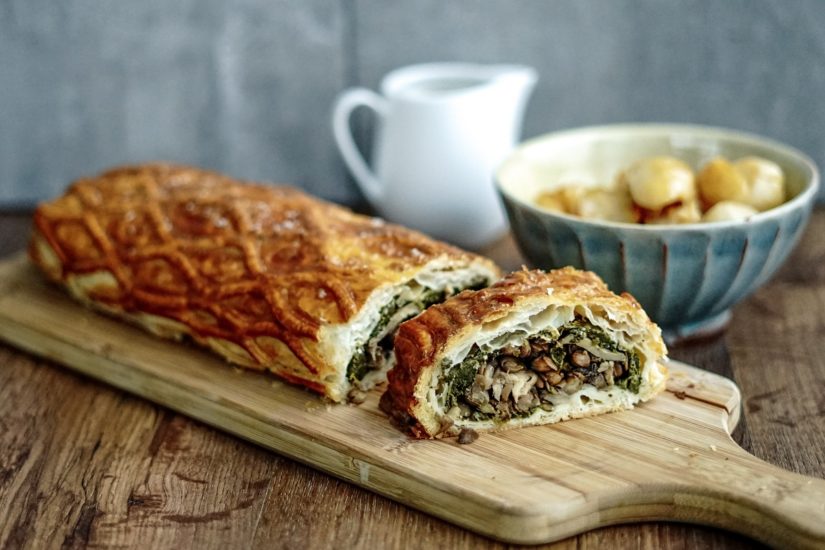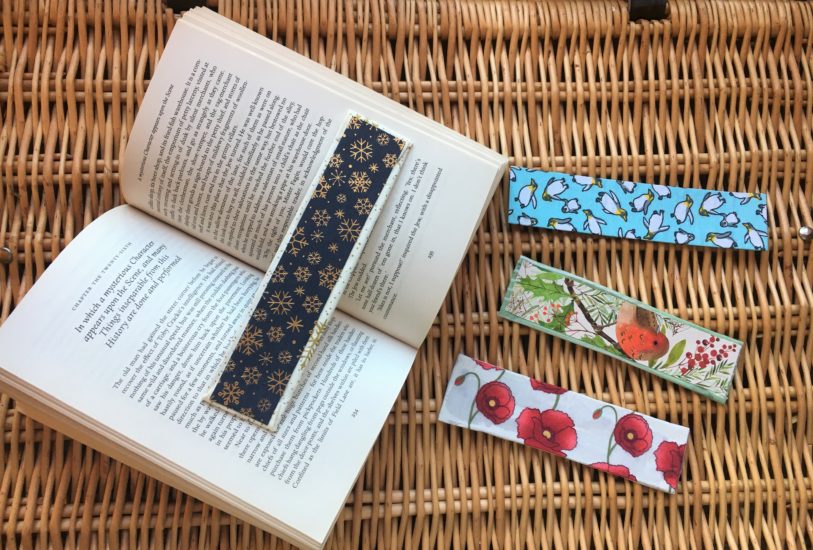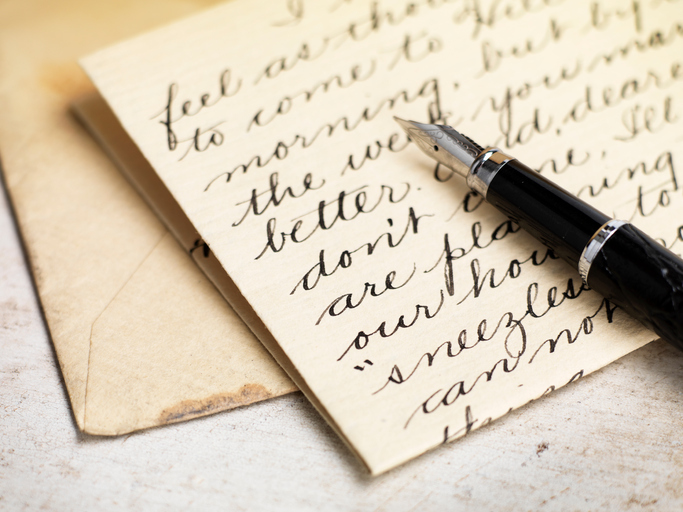
We’ve been going back through the wartime letters published in the “Friend” in 1945, the year the year World War II ended.
It’s been a fascinating look into the way people were thinking at the close of such a traumatic time in the nation’s history.
There are some angry reactions to be found — understandably, given how fresh it all was at the time of writing.
But it really warmed out hearts to see how many of our readers counselled forgiveness and tolerance.
Take a look below.
Also included here is a letter expressing a slightly… Stronger opinion from our Editor at the time!
Wartime letters in The People’s Friend
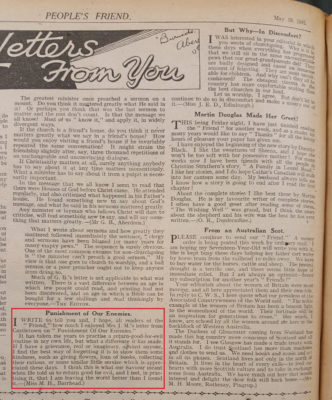
Punishment of Our Enemies (May 19, 1945)
I write to tell you and, I hope, all readers of the “Friend” how much I enjoyed Mrs J.M.’s letter from Castletown on “Punishment Of Our Enemies”.
It has taken me years to practise a return-good-for-evil routine in my own life, but what a difference it has made.
If I have a grievance, real or imaginary, against anyone, I find the best way of forgetting it is to show them some kindness, such as giving flowers, loan of books, collecting their rations, or some similar little service which is appreciated these days.
I think this is what our Saviour meant when He told us to return good for evil, and I feel, in practising it, that I am leaving the world better than I found it.
Miss M.H., Barrhead
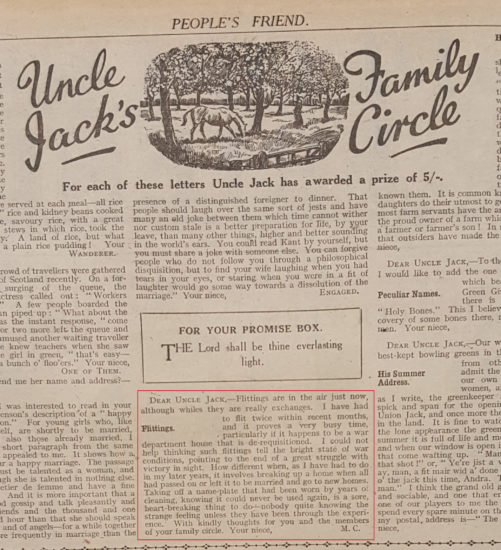 Flittings (May 26, 1945)
Flittings (May 26, 1945)
Flittings are in the air just now, although whiles they are really exchanges. I have had to flit twice within recent months, and it proves a very busy time, particularly if it happens to be a war department house that is de-requisitioned.
I could not help thinking such flittings tell the bright state of war conditions, pointing to the end of a great struggle with victory in sight. How different when, as I have had to do in my later years, it involves breaking up a home when all had passed on or left it to be married and go to new homes. […]
With kindly thoughts for you and the members of your family circle. Your niece,
M.C.
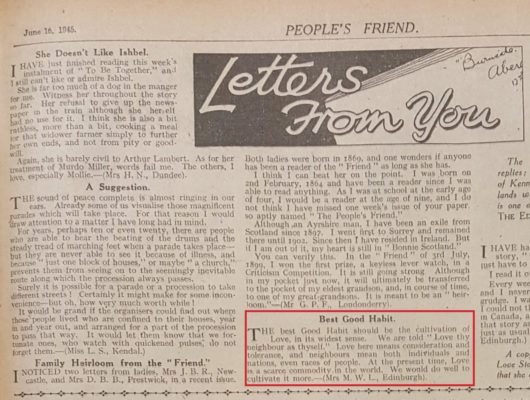 Best Good Habit (June 16, 1945)
Best Good Habit (June 16, 1945)
The best Good Habit should be the cultivation of Love, in its widest sense.
We are told “Love thy neighbour as thyself”. Love here means consideration and tolerance, and neighbours mean both individuals and nations, even races of people.
At the present time, Love is a scarce commodity in the world. We would do well to cultivate it more.
Mrs M.W.L., Edinburgh
The Future Depends On Us (“From Your Editor”, June 2, 1945)
When judgement is necessary, one has always to be calm and collected. Emotionalism must not be permitted to sway one. In a paper like the “Friend” there can be no room for harrowing details. But there is no room for doubt about the facts. The evidence against our enemies is true and terrible. On it the German nation as a nation, stands convicted and deserves punishment.
Anyone to-day who is unable or unwilling, for any reason, to accept the truth about our enemies endangers the Peace for which we have fought and which we deserve. History shows that all nations are cursed with short memories. As a nation we forget and forgive too easily.
What is decided now will not affect greatly the future of generations who have experiences two Great Wars. But it will affect the children of to-day and to-morrow.
Let us decide correctly now and leave posterity a heritage in which a mother may keep her daughters beside her until they make homes for themselves, and a father need not see his sons turned into soldiers to fight the lust and cruelty of a nation which cannot be trusted in anything.
On what we decide, the whole future of our nation may depend.
The Editor
D-Day, 80 years on: Stories & events.
From wartime letters to poetry: Incredible World War II poems from our Archives.
Discover more about your family history at Find My Past.
